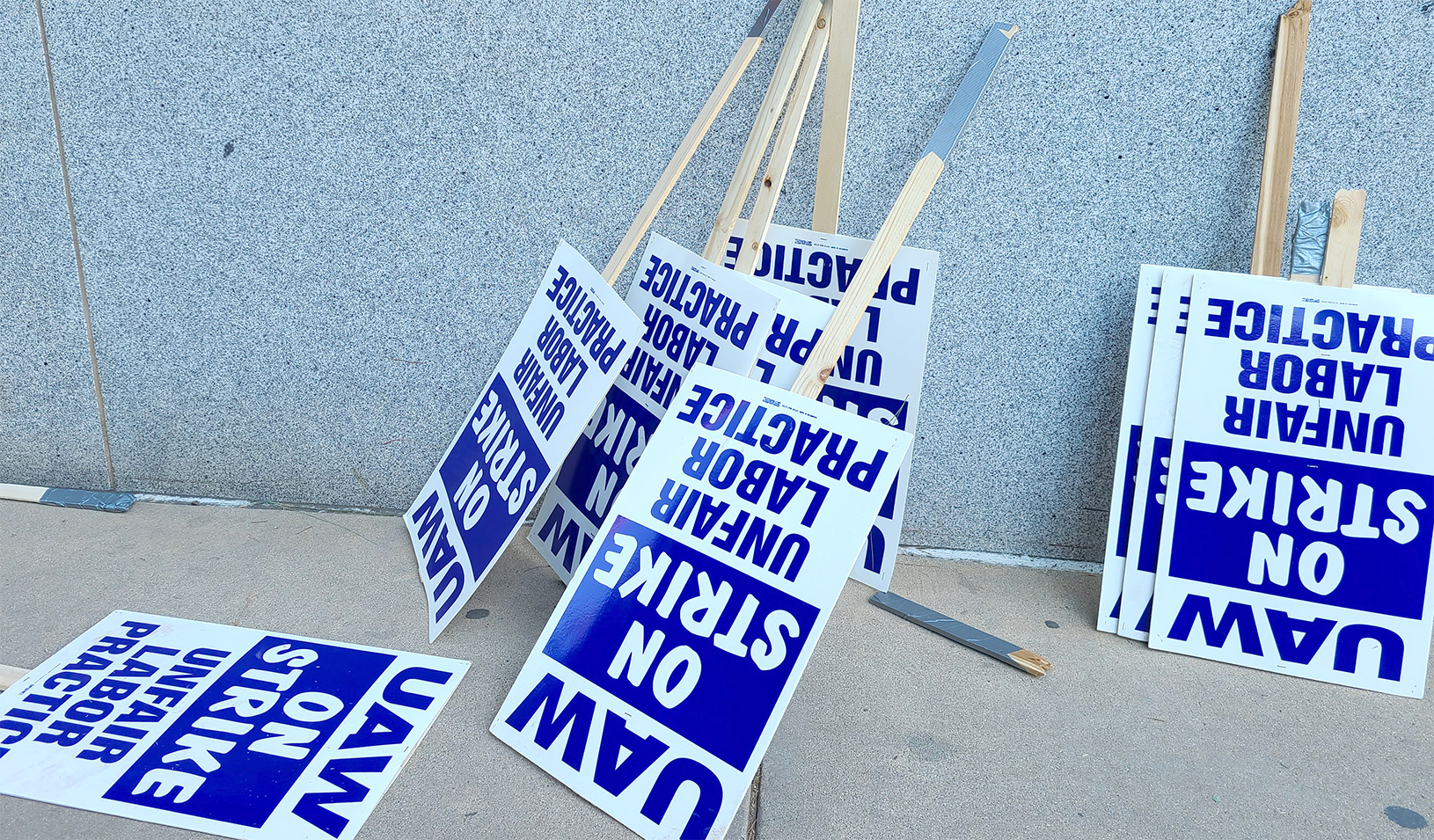
Reuters/Yannis Behrakis
America won World War II and the Cold War. But, a generation after the fall of the Berlin Wall, our nation faces a witch’s brew of challenges that demonstrate the limits of American power. From Syria to Afghanistan, from the grotesque violence of the Islamic State group to the aggressive expansionism of Russia and China, from the breakdown of civil society in much of the Middle East to a refugee calamity that tears the fabric of democracies across the globe, the landscape is littered with seemingly insoluble crises and threats to security.
That was the theme of “ When the World Is Aflame,” a campus forum on March 1 featuring three Stanford political scientists who worked in the top ranks of the U.S. foreign policy establishment: former Secretary of State Condoleezza Rice, former ambassador to Russia Michael McFaul, and former deputy ambassador to the United Nations Jeremy Weinstein.
The forum portrayed a world in which America no longer faces the existential perils of the Cold War but must instead navigate a fragmented, sectarian, and explosive geopolitical environment. “We watch the Middle East in free fall, borders disappearing, state authority collapsing, massive [death] tolls, an overwhelming refugee crisis, humanitarian disasters,” noted moderator Janine Zacharia, former Middle East correspondent for the Washington Post.
Policies regarding the Syrian civil war, relations with Russia, and the fight against terrorism offer no good solutions, just tradeoffs among unpleasant alternatives, the panelists stressed. Yet, while American power may be limited, the panelists agreed, it is still formidable. The United States can make a difference when it uses its military power and diplomatic influence in wise and measured ways. And, no matter how grim the news at any given moment, people everywhere want dignity and self-determination. That’s a fundamental truth U.S. policy can build on.
Refugees
The exodus of 4.8 million Syrians displaced by civil war has overwhelmed the developed world’s humanitarian relief infrastructure. In the United States, as elsewhere, the breakdown reflects a mix of political and logistical factors. American support for refugee resettlement has run headlong into anti-immigrant fervor and fears of terrorism. At the same time, the unique American system of using combined public and private resources to find homes for refugees in communities across the country can’t handle a crisis of this magnitude. “Even though I’m a very firm believer that the United States has a moral obligation to take people, let’s remember that we have to have a way to take them that is actually going to work within our system,” Rice said.
President Obama’s plan to accept 10,000 Syrians — a small number by international standards — has met stiff congressional opposition. To make progress, the United States must scale up its refugee programs and persuade Americans that it’s in our interest to do so. “We have a humanitarian architecture that simply isn’t up to the task,” Weinstein said. “Growing … the resources that we use to support refugee resettlement in the U.S. means getting support from Congress.”
Russia
Russia under Vladimir Putin has emerged as a major destabilizing force on the world stage, as its support for Syrian dictator Bashar Assad and its annexation of Ukrainian territory demonstrate, the panelists said. Meanwhile, Putin exploits virulent anti-Americanism to win backing at home for his brand of power politics. Managing the relationship with Russia is a challenge of the first order, the panelists agreed. Cooperation may be possible in limited areas, such as the Iran nuclear agreement. But, overall, Russia can’t be turned into a reliable partner for peace. “We’re not going to have a kind of fundamental new relationship with Russia until Putin changes his policy,” McFaul said.
Means of influencing Russia are limited, but international pressure and economic weapons have some effect. In the long run though, America’s most effective tool is exactly the thing Putin fears most — moral and political support for the democratic elements in Russian society.
Syria
In Syria, all the policy options were bad, the panelists said. When thousands of people rose against the Assad dictatorship in 2011, the United States considered a large-scale program to supply arms to the rebels. But some of that weaponry would have fallen into the hands of anti-democratic groups linked to terrorism, so arms aid was kept limited. Russia had less compunction and offered military aid and political support to keep Assad in power. That has left the United States with little advantage.
“They [the Russians] have succeeded in many ways in strengthening the hands of the Assad regime,” said Weinstein. “And that gives them leverage at the diplomatic table.”
America learned a hard lesson a decade ago in Iraq when it intervened to oust a brutal dictator. In Syria, panelists agreed, the United States has learned a hard lesson about what can happen when it stays its hand.
The panelists were more optimistic about the fight against the Islamic State group known as ISIS. They noted that a combination of American air power, limited special forces deployment, and training of Iraqis holds the promise of reversing the jihadist group’s gains. Ultimately, the Islamic State can only be defeated by conventional military forces, but therein lies a problem. Any army dominated by Kurds or Shiites could alienate the Sunni population, thereby deepening regional divisions and fueling continued insurgency.
“There’s broad agreement that we need a ground force,” Weinstein said. “The challenge is, who’s in that ground force?”
For media inquiries, visit the Newsroom.






